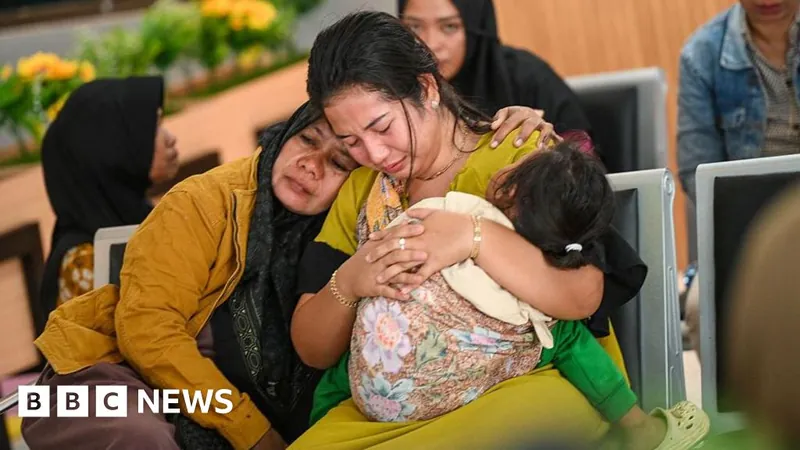
Tanzania Thwarts Marburg Outbreak Rumors as WHO Sounds Alarm!
2025-01-16
Author: Ting
Tanzania Rejects WHO Claims
In a recent announcement that has grabbed global attention, Tanzania has firmly rejected the World Health Organization's (WHO) claims of a suspected outbreak of the Marburg virus in the country's Kagera region. This development comes after the WHO reported nine suspected cases, including eight fatalities, over the preceding five days—a situation that raised alarms across health sectors worldwide.
Health Minister Assures Negative Tests
However, Tanzanian Health Minister Jenista Mhagama assured the public that after comprehensive analysis of collected samples, all tests returned negative for the Marburg virus, dispelling fears of a deadly outbreak. "We want to reassure international organizations, including the WHO, that our surveillance systems are robust and monitoring is ongoing," stated Mhagama.
Understanding the Marburg Virus
The Marburg virus, known for its similarity to Ebola, can manifest severe symptoms including high fever, intense muscle pain, vomiting, and severe hemorrhaging, often leading to fatalities. Following the country’s first recorded outbreak in March 2023, which resulted in six deaths over a two-month period in the Bukoba district, health officials in Tanzania have ramped up their monitoring and rapid response capabilities.
WHO Raises Concerns
WHO chief Dr. Tedros Adhanom Ghebreyesus recently warned of potential increases in cases in the coming days as disease tracking enhancements are implemented. The region of Kagera, a significant transit hub due to its proximity to borders with the Democratic Republic of the Congo, Uganda, Burundi, and Rwanda, presents particular challenges in containing potential outbreaks.
Current Risk Assessment
In light of these developments, the WHO clarified that while there is a "high" risk of the Marburg virus spreading locally due to cross-border movement, the global risk remains "low," indicating that there are currently no immediate concerns about international transmission. Despite the WHO’s cautionary notes, Dr. Tedros emphasized there are no recommendations for travel or trade restrictions with Tanzania at this time.
Expert Team Deployed
To counter the outbreak fears, a team of experts has swiftly been dispatched to the Kagera region to investigate the reported cases and conduct further testing. The Tanzanian health authorities are eager to maintain transparency, reassuring both national and international communities about the situation.
The Importance of Vigilance
The Marburg virus, primarily transmitted from fruit bats to humans, currently has no authorized vaccines or specific treatments, although clinical trials are in progress. The WHO reports that the disease has an average fatality rate of about 50%, making vigilance and rapid response crucial.
Conclusion
Given the complex nature of infectious diseases and global travel, Tanzania's quick action and transparent communication may play a critical role in mitigating public health risks. As the situation evolves, health officials remain on high alert, prepared to respond effectively to any unforeseen developments.




 Brasil (PT)
Brasil (PT)
 Canada (EN)
Canada (EN)
 Chile (ES)
Chile (ES)
 Česko (CS)
Česko (CS)
 대한민국 (KO)
대한민국 (KO)
 España (ES)
España (ES)
 France (FR)
France (FR)
 Hong Kong (EN)
Hong Kong (EN)
 Italia (IT)
Italia (IT)
 日本 (JA)
日本 (JA)
 Magyarország (HU)
Magyarország (HU)
 Norge (NO)
Norge (NO)
 Polska (PL)
Polska (PL)
 Schweiz (DE)
Schweiz (DE)
 Singapore (EN)
Singapore (EN)
 Sverige (SV)
Sverige (SV)
 Suomi (FI)
Suomi (FI)
 Türkiye (TR)
Türkiye (TR)
 الإمارات العربية المتحدة (AR)
الإمارات العربية المتحدة (AR)